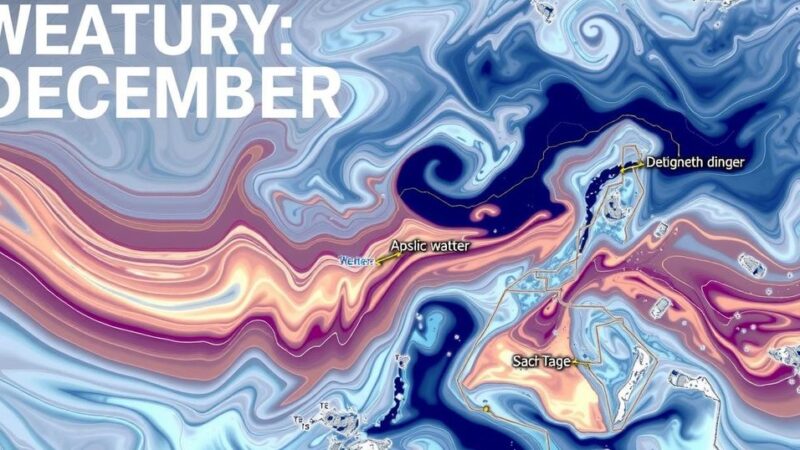A study by the Helmholtz Centre for Environmental Research highlights that over 30% of the intense drought affecting Central and Southern Europe in summer 2022 can be attributed to climate change. Public life, agriculture, and ecosystems were severely impacted. The drought’s severity, the worst since 1960, further emphasizes the urgent need for climate action and improved water management strategies as rising global temperatures enhance drought conditions.
A recent study conducted by the Helmholtz Centre for Environmental Research (UFZ) has determined that human-induced climate change played a significant role in intensifying the drought that afflicted Central and Southern Europe during the summer of 2022. This drought had profound impacts, leading to drastic soil moisture depletion and severe consequences for agricultural production, public health, and local ecosystems across numerous countries in the region. The multifunctional research team, through a comprehensive analysis published in the journal Nature Geoscience, concluded that over 30% of the extraordinary severity and widespread extent of the drought can be attributed to anthropogenic climate change. Continuous declines in soil moisture levels over preceding years due to climate change further exacerbated the situation. During the summer months, an estimated 50% of the population in Italy experienced water restrictions, while in France, hundreds of municipalities relied on trucked deliveries of drinking water. Agricultural outputs were notably compromised, with yields for key crops, such as grain maize, sunflowers, and soybeans, falling by 15% relative to the averages of 2017 through 2021. Additionally, these conditions precipitated catastrophic forest fires in Italy, France, Slovenia, and Romania, alongside significant reductions in hydroelectric power generation due to constrained water supply in major rivers, including the Po and Rhine. Dr. Emanuele Bevacqua, leading author of the study, remarked on the socio-economic repercussions of the drought, highlighting its extensive reach across the affected regions. Employing various hydrological models, the study analyzed soil moisture data and river discharge patterns across Europe, revealing that between June and August 2022, approximately 280 cubic kilometers of water—a volume equivalent to 120 million swimming pools—was absent from the soil in Central and Southern Europe. The study also underscored the troubling long-term effects of climate change, indicating that the water deficit observed was the most severe since records began in 1960. Critical precipitation shortfalls, coupled with record heat, led to an average summer temperature increase of 1.9 degrees Celsius compared to historical averages, compounding the drought’s impact. By quantifying the specific contributions of climate change, researchers emphasized that approximately 31% of the soil moisture deficit was a direct consequence of anthropogenic factors. The study further illustrated how rising global temperatures contribute to increased evaporation rates, leading to substantial reductions in ground water levels. The lagged effects of climate change were also examined, revealing that pre-existing conditions of reduced soil moisture prior to November 2021 led to a significant contribution to the 2022 drought effect. This investigation ultimately sheds light on the intricate relationship between climate change and drought occurrence, particularly emphasizing the delayed impacts of climate change that are frequently overlooked yet crucial to understanding regional water management challenges moving forward.
The 2022 drought in Central and Southern Europe marked a significant environmental crisis, characterized by unprecedented soil moisture deficits and sociocultural repercussions. Studies have linked drought conditions to climate change, impacting agriculture, water supply, and public health. This latest research elaborates on the quantifiable effects of climate change on drought severity and occurrence, aligning with prior assessments by institutions like the Intergovernmental Panel on Climate Change (IPCC). The holistic approach taken in this study, integrating hydrological modeling and empirical data, provides deeper insights into the socio-economic and ecological consequences of climate change-induced droughts.
In conclusion, the recent findings underscore the substantial impact of anthropogenic climate change on exacerbating drought conditions in Central and Southern Europe. The study reveals that human activities are closely linked to drastic reductions in soil moisture, severe agricultural losses, and greater socio-economic challenges. Moreover, recognizing the delayed effects of climate change can enhance future strategies for water management and climate adaptation. The persistence of these trends necessitates urgent action to mitigate climate change and its far-reaching effects on the environment and society.
Original Source: phys.org







